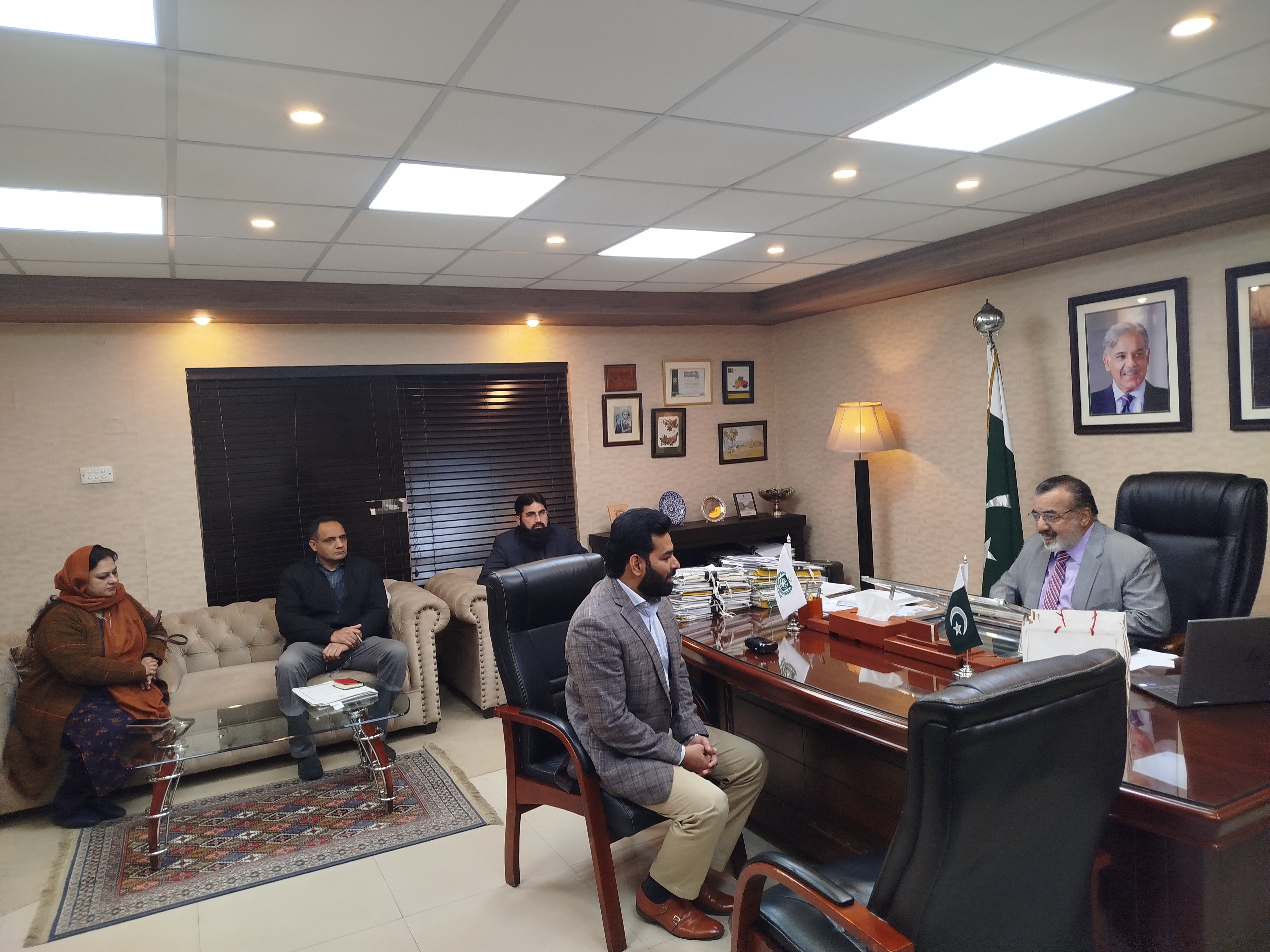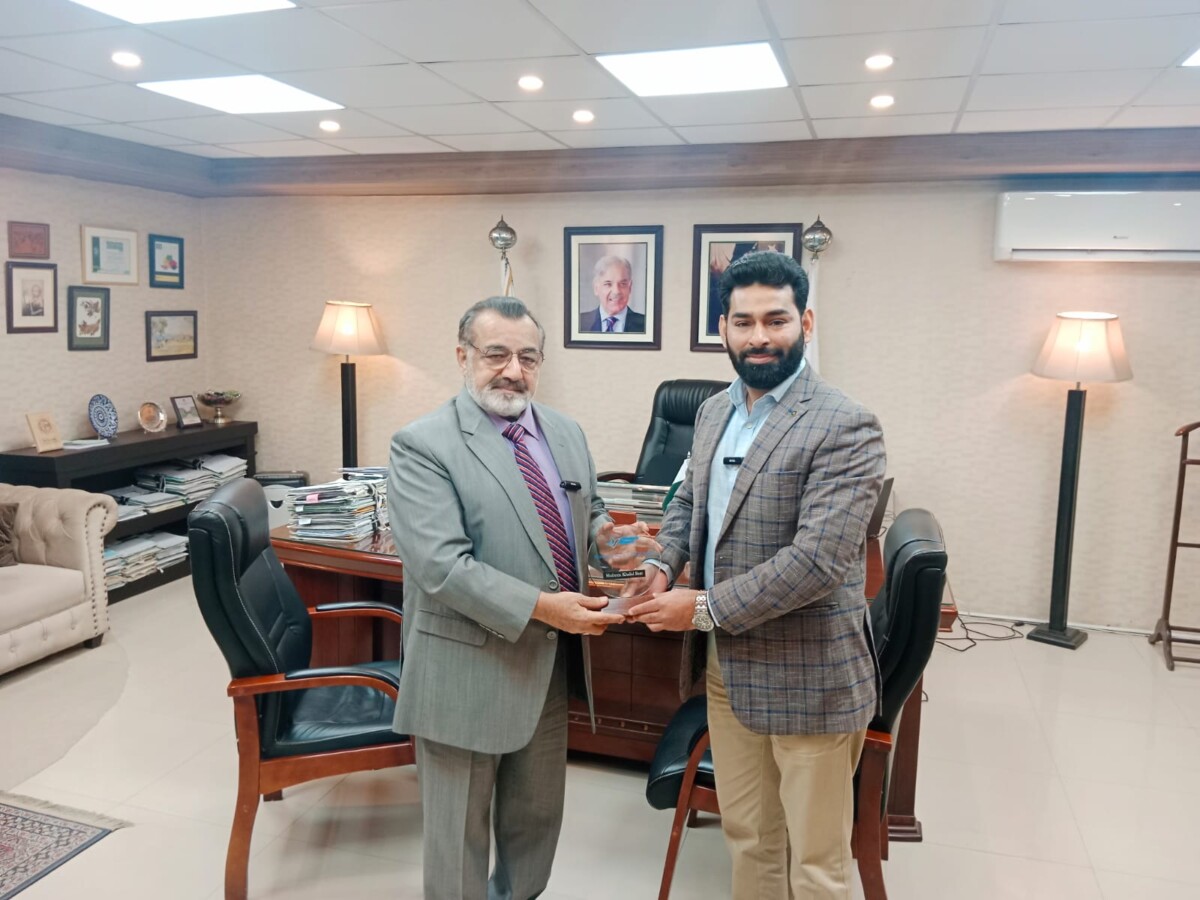
Meeting Between Dimension Research and PBM’s New MD Mr. Shaheen Khalid Butt on the impact of DR and PBM in the Patient Support Program.
January 14, 2025, Islamabad:
M. Saqib Siddiqui, Sen. Manager of the Patient Support Program at Dimension Research (DR), met with the newly appointed Managing Director (MD) of Pakistan-Bait-ul-Mal (PBM), Mr. Shaheen Khalid Butt, in an important meeting to discuss healthcare support for the underserved population of Pakistan.
During the meeting, Saqib congratulated Mr. Khalid on his appointment as MD of PBM, one of the largest institutions in Pakistan dedicated to supporting the country’s most vulnerable individuals. Saqib recognized the challenging nature of Mr. Khalid’s new role and expressed confidence in his ability to lead PBM effectively.
Saqib highlighted the significant contributions of Dimension Research, which has provided patient support services to over 35,000 patients in Pakistan, including individuals suffering from cancer, arthritis, diabetes, and osteoporosis. While cancer patients represent the majority of DR’s beneficiaries, the organization has offered comprehensive financial assistance amounting to over Rs. 4.1 billion, collaborating with sponsors and PBM to provide vital support. Dr. Sadia, Assistant Director at PBM, further emphasized that arthritis, a critical condition prevalent in humid regions of the country, is also a major concern that DR addresses.
In a show of goodwill, Saqib, on behalf of DR’s CEO Khurram Zaki Khan, offered free soft skills training for PBM employees, with the aim of enhancing operational efficiency and customer service at PBM. The offer was well received, as it aligns with PBM’s goal to strengthen its workforce.
During the meeting, Mr. Khalid elaborated on PBM’s vision and its wide-ranging services to Pakistan’s underserved population. Saqib acknowledged PBM’s critical role in offering free medical treatment, especially in a country where over 35% of the population lives below the poverty line. He noted that after receiving initial treatment cycles from PBM, many patients are able to access additional free-of-cost (FOC) medicines through DR that not only saves a patient’s life but the whole family.
When asked how PBM plans to efficiently serve such a large population with limited resources, Mr. Khalid responded that while budget constraints remain a challenge, he is actively planning a series of initiatives aimed at improving service delivery and maximizing the impact of PBM’s resources.
In closing, Mr. Khalid expressed his appreciation for the PSPs in Pakistan, including the vital role played by DR in addressing the healthcare needs of the country’s most vulnerable individuals. Saqib, in return, presented a souvenir to Mr. Khalid as a token of appreciation for the collaboration and shared commitment to improving healthcare outcomes for Pakistan’s underserved population.



Leave A Comment